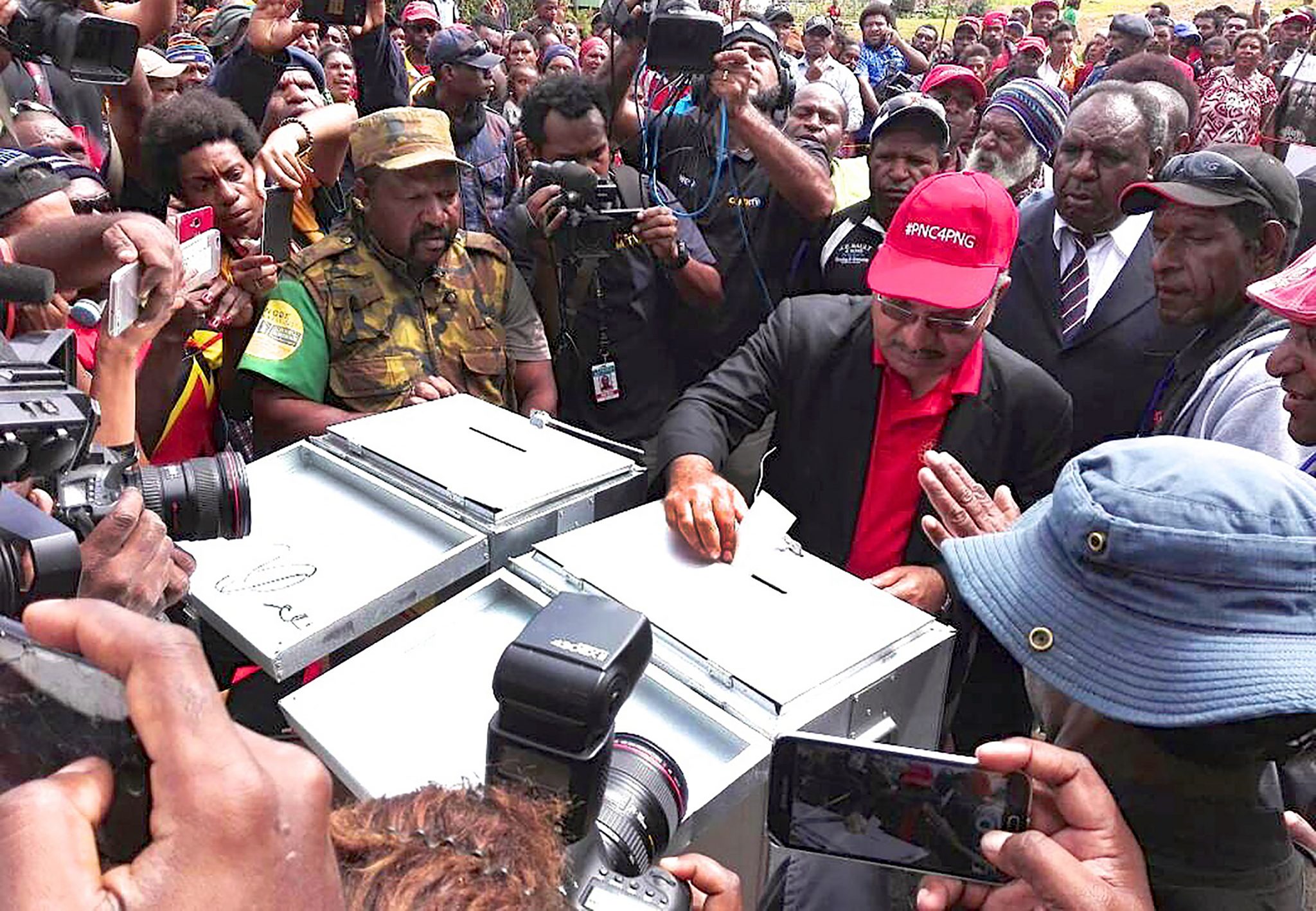Papua New Guinea Integrity of Political Parties and Candidates Commission has confirmed that only 44 parties will field candidates in the elections.
Registrar Dr Alphonse Gelu said the commission had de-registered 10 political parties due to non-compliance to issues such as the return of their annual financial statements and others requirements.
There were 54 registered political parties.
“Three of the 10 de-registered political parties were told to explain why they should not be de-registered and the other seven were issued strict warnings to respond and explain why they should stay,” Gelu said.
“We have just registered another two parties, that’s what we have now, the number will come down, I guess it will be below 50.
“Parties are open to come and register, we have no limit regarding the number of political parties, it’s open.”
Meanwhile, Gelu has urged candidates in the general election to remain loyal to their political parties.
Gelu said loyalty shown to any political party by candidates in the Papua New Guinea election will reduce the high level of political instability.
“Look at the trend of politics in this country, things have changed after the 80s, leaders lack loyalty to their political parties,” he said.
“Parties were formed and the number of parties have increased, but there was no loyalty shown by leaders.
“This is the reason why we have high level of political instability.
“They are here today, tomorrow they are gone.
“That is why the Organic Law on the Integrity of Political Parties and Candidates was passed by Parliament to put a stop to such practices.”
“Once you become a member of a party, you stick to that party.
“This is something that we need to nurture, we need to nature that kind of value that leaders must have towards political parties.”
Gelu said despite differences between ordinary people and leaders who are members of political parties, the shift in alliance by ordinary people did not affect the prominence of a political party.
